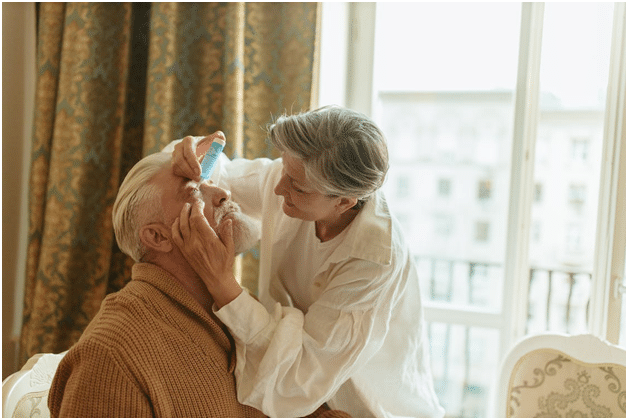Table of Contents

Eye health is one of the most important aspects of a healthy body. With a clear vision, your eyes can see whatever you are looking for once you wake up. However, your eyes may need better maintenance over time due to age. Fortunately, eye drops help you address potential problems before it grows. In addition, eye drops contain vitamins and minerals that cover specific eye diseases.
Remember that there are uses for eye drops prescribed by the doctor and the ones available in stores. While both heal the ocular surface, their effects vary depending on the type. It should be noted that you should always get the right eye drops before using them. Consider these four aspects of eye care as you use eye drops.
Often people require eye drops when they get lasik eye surgery. This helps the eye heal and get moisture after lasik eye surgery and helps speed up the recovery of the operated eye. In most cases, patients can expect to need eye drops for several weeks to a few months.
Prescription vs Over-the-Counter Eye Drops
Over-the-counter (OTC) eye drops are available in most general stores and pharmacies. OTC eye drops are safe for use as long as you do not use them for prolonged periods. These eye drops contain ingredients that constrict blood vessels for a temporary period. However, the effects can wear off due to the preservatives.
On the other hand, prescribed eye drops contain a specific formulation that addresses your diagnosed condition. These include Patanol, Livostin, and Alomide, which relieve redness and eye irritation. Furthermore, prescribed eye drops are anti-inflammatory and treat serious conditions such as glaucoma.
Benefits
The benefits of eye drops include the lubrication of the ocular surface. Your eyes need moisture, and that includes the tears you make. Lubrication clears the surface, giving you clear vision and providing comfort to your eyesight. One such product that can give you this effect is Enrich eye drops, and it comes with efforts backed by research.
In addition, it alleviates the burning sensation in the eyes during allergy seasons such as spring. Eye drops reduce the chances of any potential side effects from the product. As a result, your eyes get more comfortable as the season goes on.
General Risks
Some eye drops may contain preservatives, which can change the ocular surface or cause irritation. This is the reason why eye drops should stay within the prescribed usage. If you need frequent eye drops, it is advisable to get eye drops without preservatives.
While applying eye drops, the bottle should not touch the eye surface as it can spread an infection. Bottles should also not be shared with anyone. If anyone uses the same bottle, the effects will not be as effective when used more often.
Side Effects
As eye drops help alleviate eye problems, some can come with side effects. One side effect that can occur is redness or stinging. Furthermore, problems such as eye pain, swelling, and other visual impairment may happen. If these side effects last longer or worsen, consult your eye doctor. It is important to get expert advice so that you can heal your eyes faster.
Wrapping Up
Eye drops come with great benefits for your overall eye health. However, some formulations will work differently for each condition. You can get a prescribed eye prescription or over-the-counter eye drops. Each type of eye drop comes with general risks, but they can provide enough nutrients for your vision. If the side effects are too much for you, you can consult with your eye doctor. Ultimately, eye drops provide a way to alleviate eye problems as you age.

Author’s Bio:
Deinah Storm works in the corporate industry, but she has quite a bit of knowledge about beauty, health, and skin care. On her free days, she finds solace in writing and educating more people about taking care of your beauty, skin, and wellness.